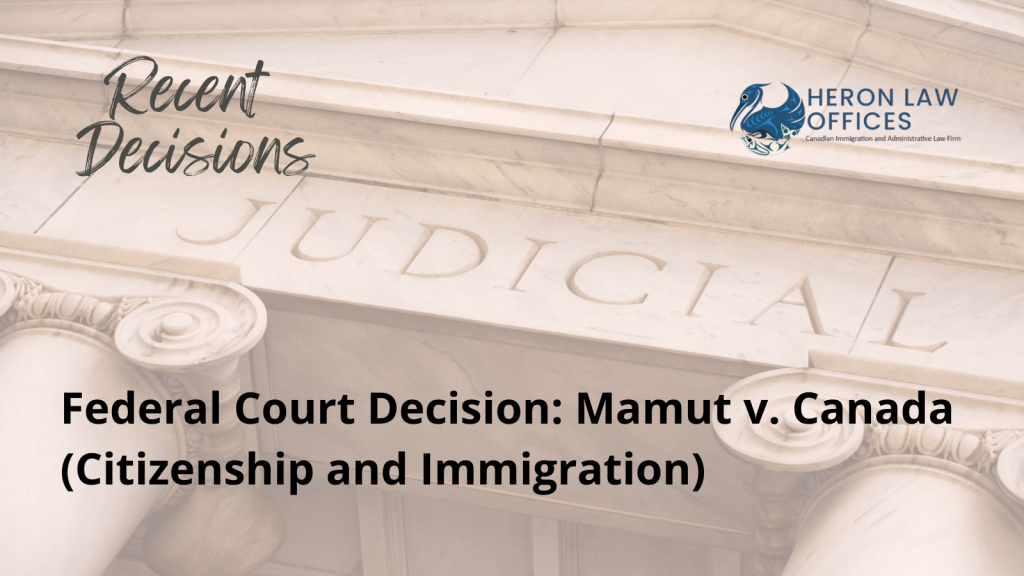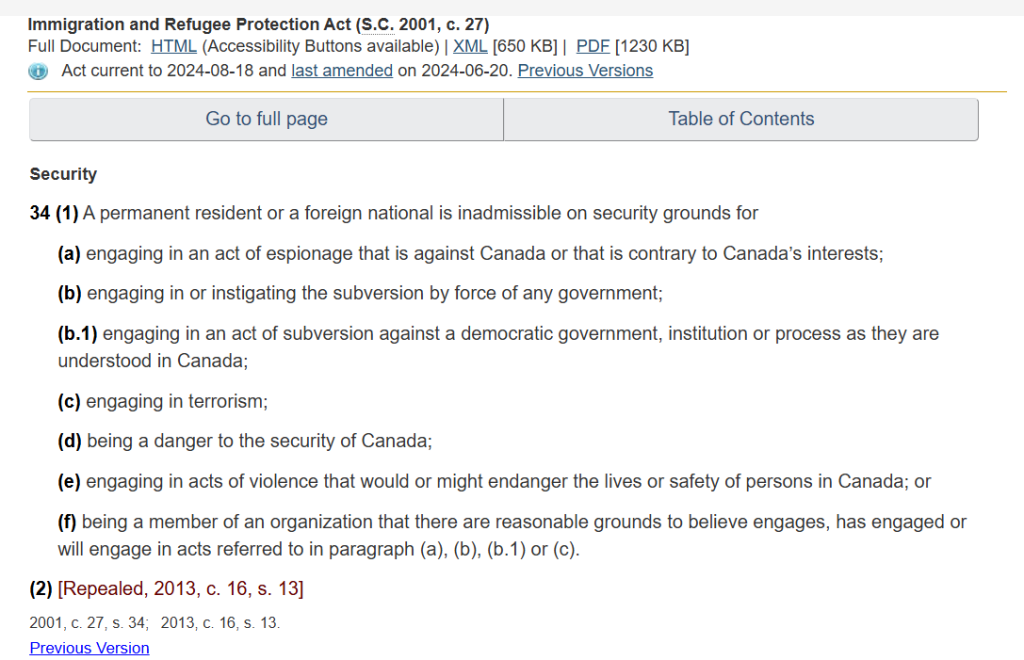
Mamut v. Canada (Citizenship and Immigration)
Date: 2024-10-08
The Applicants are Chinese citizens of Uyghur ethnicity who were captured in Pakistan and turned over to US authorities after the invasion of Afghanistan in 2001. They were transferred to Guantanamo Bay and held there until 2009. Both of their spouses were granted refugee protection in Canada and became permanent residents, while the Applicants applications remain outstanding due to concerns that they may be inadmissible for security reasons under s. 34 of the IRPA.

The Applicants argued that there had been an inordinate delay in the processing of their applications for permanent residence (9 years and nearly 11 years) and that this delay was so excessive, oppressive, and unfair as to constitute an abuse of process. They sought an order seeking a stay of the security inadmissibility proceedings and directing the Minister to proceed with processing their applications, or in the alternative, an order directing the Minister to find that they are not inadmissible or prohibiting the Minister from finding them inadmissible. They also argued that the test for #mandamus was met and that the Minister should be ordered to render a decision without additional undue delay.
Justice Norris allowed the application in part. The Court was satisfied that there had been inordinate delay in the processing of the applications for permanent residence and that the Applicants were entitled to a remedy, but that the delay did not amount to an abuse of process.
Justice Norris emphasized that absent the granting of a constitutional remedy, which the Applicants have not sought, the Court’s powers do not extend to ordering the Minister to disregard the requirements of IRPA. Further, a stay of the inadmissibility assessments was not meaningfully responsive to the prejudice the Applicants suffered. Nevertheless, the delay in these cases was excessive and the Minister had not demonstrated why the time taken to make a decision was justified. The Applicants were entitled to a remedy of mandamus: the Minister was ordered to make a decision no later than 30 days from the date of the judgment. The Applicants were also awarded costs on grounds of special reasons (Rule 22 SOR/2002-232).
Read more about the case: https://decisions.fct-cf.gc.ca/fc-cf/decisions/en/item/526622/index.do



